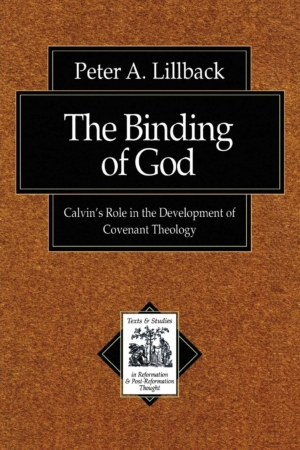Many years ago, at an ecclesiastical meeting, there was a worship service. The minister preaching was retired but something of a hero in the denomination. He and others had stood for the truth when many others had taken an easier and more . . . Continue reading →
Author Archives: R. Scott Clark
On Evangelical Instability And The Remedy
Sometimes people who come from the non-confessional evangelical world look at confessional churches as though they are hide-bound traditionalists. Doubtless, that is sometimes true. The words “we have never done it that way” have been heard from time to time in Reformed . . . Continue reading →
Wanted: Gifted Young Men For Pastoral Ministry
The confessional Presbyterian and Reformed churches are facing a challenge that I have not seen since I first joined St John Reformed Church over 40 years ago: a shortage of pastors. For decades, there have been more candidates for ministry than there . . . Continue reading →
Where Is The Church Heading?
Introduction None of us knows the specifics of the future. There are a few things that every Christian knows from Scripture about the future. We know that Christ shall return (Acts 1:11), that there shall be a bodily resurrection (1 Thess 4:16), . . . Continue reading →
Jesus’ Theology Of The Cross: Blessed Are The Persecuted
11Blessed are you whenever they mock you and persecute you and say all manner of evil against you, lying against you. 12Rejoice and exult because your reward is great in heaven. For thus they persecuted the prophets before you. (Matt 5:11–12) During . . . Continue reading →
Review: The Binding of God: Calvin’s Role in the Development of Covenant Theology by Peter A. Lillback
Whether Calvin was a covenant theologian has been a matter of considerable confusion and controversy in modern Calvin studies. The answer to this question has usually been determined by whether one considers the rise of covenant theology a positive or negative development, . . . Continue reading →
Who Should Not Go To Seminary?
Last time we answered the question: who should go to seminary? The answer was that anyone may go to seminary, but not everyone should go to seminary. Today we will focus on the second part of the answer: who should not go . . . Continue reading →
The Gospel According To John (MacArthur)—Part 12
Because the MacArthurite sect of Dispensationalism (we might say post-modified Dispensationalism but not quite Progressive Dispensationalism) intersects only occasionally and tangentially with the Reformation, the defenders of Lordship Salvation assume that any critique of the system is necessarily a defense of Zane . . . Continue reading →
Who Should Go to Seminary?
I was once asked a good and important question: who should go to seminary? The answer to this question is in two parts: anyone, but not everyone. First, anyone may go to seminary. Since I teach at a seminary (Westminster Seminary California), . . . Continue reading →
The Grammar Guerrilla Returns: Dismantling The Wall Of Creeping Illiteracy
I realized recently that I have been neglecting my responsibility to save English grammar in America. My sincerest apologies, but the Grammar Guerrilla is back to observe and complain about the expression “too good of.” We hear it most often on sports-talk . . . Continue reading →
Sub-Christian Nationalism? (Part 9)
In Article X, under the heading, “On Nationalism and Policy Priorities,” the Statement says: WE AFFIRM that nations possess an inviolable right to establish justice and safeguard the peace and prosperity of their own citizens. We affirm that implementing Christian Nationalism in . . . Continue reading →
Abraham, Moses, and Baptism
I am in the midst of an interesting discussion of baptism with a friend. This friend has Baptist convictions, yet he understands Reformed theology better than many of the Reformed. He is quite sympathetic to historic and confessional Reformed theology. For example, . . . Continue reading →
Sodom, Jude 7, Biases, And How To Interpret The Bible
On 20 September 2021, T. E. Bunch et al. published what became a hotly (pun intended) controverted article, which claimed to have found evidence of a “Tunguska sized airburst” over Tall el-Hammam, a Middle Bronze Age city in the Jordan Valley near . . . Continue reading →
With The Guilt, Grace, Gratitude Podcast On The Covenant Of Redemption
Late last month I had the pleasure of talking with Nick from the Guilt, Grace, Gratitude podcast about the covenant of redemption. This is an important, if neglected, aspect of Reformed theology. From all eternity the Father, Son, and Spirit loved a . . . Continue reading →
The Gospel According To John (MacArthur)—Part 11
One of the unfortunate aspects of the intra-Dispensational argument—that is, the Lordship Salvation controversy—is that both sides appealed to the Reformation, but neither side represented the Reformation theology, piety, and practice. Dispensationalism is a nineteenth-century phenomenon. Its roots are in the holiness . . . Continue reading →
Are Church Members Free Agents?
One of the biggest developments of the modern era of sports is the rise of the “free agent.” Under “free agency” an athlete is bound to a team only for a short period of time, at the end of which he becomes . . . Continue reading →
Parents, Choose Your Christian College Carefully
The Religion News Service (RNS) reports, “Whitworth University, a Christian school affiliated with the Presbyterian Church (U.S.A.), has revised its policies to allow for the hiring of faculty who identify as LGBTQ and to add sexual orientation to its non-discrimination statement.” The . . . Continue reading →
The Gospel According To John (MacArthur)—Part 10
The overarching theme of this series has been that the Lordship Salvation doctrine confuses the law and the gospel.95 Nowhere is that confusion more evident than in his handling of the rich young ruler in Matthew 19:16–22: And behold, a man came . . . Continue reading →
Lleva Tiempo Llegar A Ser Reformado
Cualquier cosa que merezca la pena lleva su tiempo. Malcom Gladwell dice que para realmente dominar una habilidad importante se necesitandiez mil horas. Podemos debatir si eso es cierto en todos los casos, pero la experiencia común nos dice que las habilidades . . . Continue reading →
Is the Pope a Protestant?
About once a week, the Bishop of Rome holds a “general audience” in St. Peter’s Square in which he gives instruction (catechesis) to Roman Catholics. In three of Benedict XVI’s (the late Joseph Cardinal Ratzinger) catechetical audiences voiced themes that might be . . . Continue reading →















